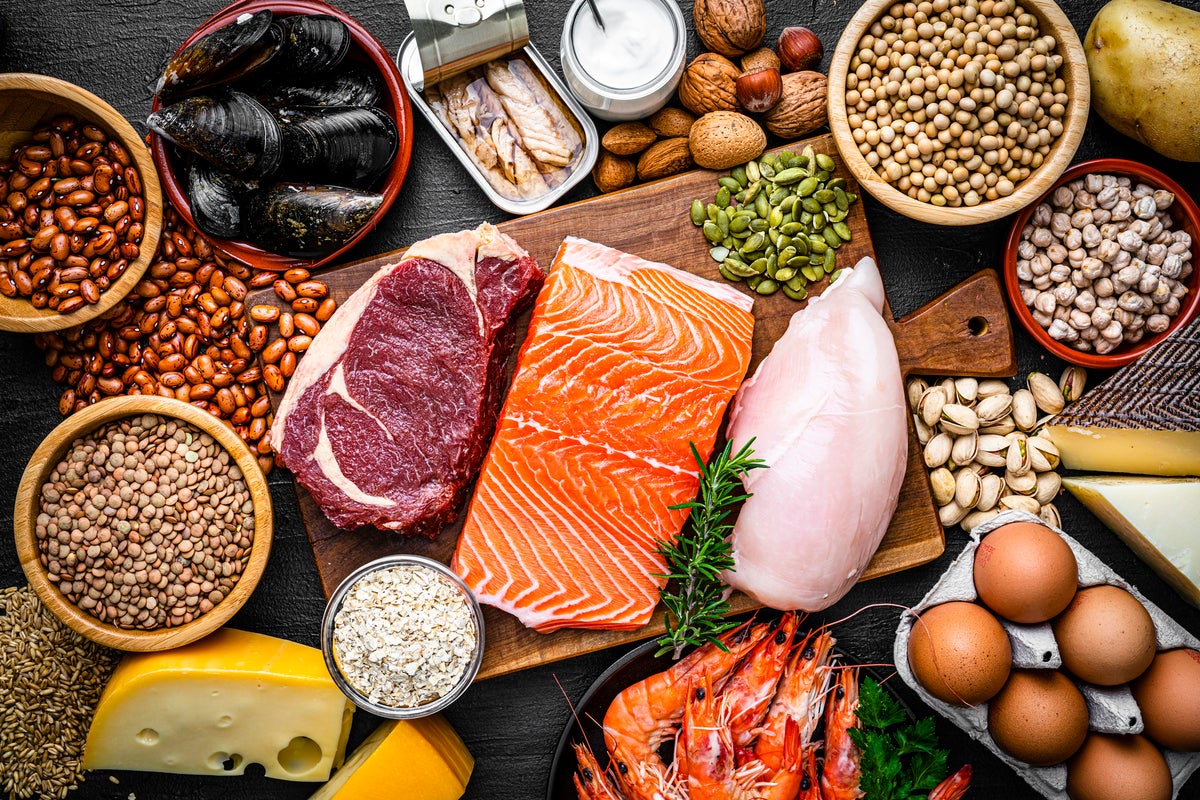T4K3.news
Experts recommend dietary changes for midlife health
Adults in their forties and fifties should adapt their diets to address changing nutritional needs.

Experts outline essential dietary shifts for individuals in their forties and fifties.
Navigating Nutrition in Midlife for Lasting Health
In a world focused on youthful health trends, adults in their forties and fifties face unique nutritional challenges. Hormonal changes and aging bring shifts in dietary needs that must be addressed for long-term vitality. Dr. Linia Patel, a women's health dietitian, notes the impact of these changes on muscle mass and overall health. As testosterone and estrogen levels fluctuate, adults may experience variations in energy, muscle mass, and heart health. Eating well during midlife emphasizes increasing protein intake and focusing on plant diversity. Experts like Dr. Federica Amati recommend aiming for one gram of protein per kilogram of body weight daily, with increased needs for those over 65 or going through menopause. Moreover, including 30 different plant varieties each week can help enhance cognitive function and overall wellbeing. Importantly, the shift from quick fixes to sustainable habits is critical. What once worked in youth may no longer suffice, prompting a reevaluation of dietary patterns.
Key Takeaways
"Hormonal changes play a central role in our nutritional needs."
This statement highlights the necessity to adjust diets as one ages.
"Aim for 30 different plants per week for better health."
This advice emphasizes the importance of variety in diets for midlife adults.
"Muscle needs stimulus to grow. Protein is just the building material, not the architect."
This quote from Dr. Patel stresses the need for exercise alongside dietary changes.
"It's emphatically the case that it's never too late to make changes."
Corfe's reminder underscores the potential for positive health outcomes at any age.
This analysis highlights the growing recognition that nutrition plays a crucial role in midlife health. As expert opinions converge on the importance of protein and diverse plant intake, it's clear that a targeted approach is essential. The emphasis on personalizing diets underscores a departure from one-size-fits-all recommendations. This shift also reflects a broader understanding of the intricate relationship between diet, hormones, and aging. Ignoring these aspects may lead to health complications as individuals age, emphasizing the importance of maintaining dietary awareness.
Highlights
- Healthy eating is not about strict diets; it's about balance and variety.
- A diverse diet is your best defense against age-related decline.
- Hydration is key; even mild dehydration affects brain function.
- Change isn't easy, but it's never too late to improve your health.
Concerns About Aging Health
As adults age, nutritional requirements change, creating potential risks if not properly managed. Ignoring these dietary adjustments can lead to serious health issues, including muscle loss and increased risk of chronic diseases. This could provoke a public reaction regarding healthcare priorities and wellness education.
Adopting mindful eating habits now can lead to healthier aging and improved quality of life.
Enjoyed this? Let your friends know!
Related News

Fibermaxxing gains popularity on TikTok

Experts identify five signs of protein deficiency

Colon cancer case spikes among younger adults drive health warnings

Bananas help support digestive health

New research challenges fasting diets for obese individuals

Surgeon warns about fibre intake

Dietary Changes Could Help Reduce Headaches

Experts advocate for reevaluating plant-based meats
